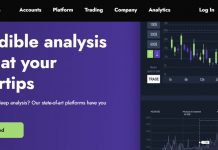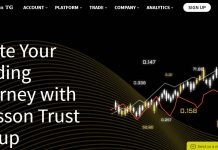Futures Trading in Denmark
Futures are contracts whereby there is an agreement to buy or sell an asset or underlying commodity at a future date. With this contract, there is a buyer and a seller.
The buyer takes a long position (decides to buys) in anticipation of the commodity prices rising, but the seller takes a short position (decides to sells) with the hopes that the commodity prices will go down. A futures contract is mainly used for speculation and hedging purposes.
The main advantage of a futures contract is that it eliminates the risk of losses due to the unpredictable economic and financial situations of the future. There is usually no actual exchange of physical commodities, instead, it is mainly on paper.
A speculator or a trader usually anticipates a certain move in the commodity prices before they can take a stand. There are two main moves; long position and short position. By taking a short position, it implies that the trader foresees a downwards shift in prices. Therefore, they will consider initiating the sale of the asset. The opposite is also true.
How the Futures Operate
Traders in Denmark can use the information present in the DK stock exchange to speculate on the direction the commodity prices are likely to take in the near future.
It is not only the individual traders that are interested in price movements. Individual traders too are not left out. Everyone wants to prevent the inevitable from happening.
Therefore, to start futures trading in Denmark, you will approach a registered futures broker who will then create and maintain an account for you and also guarantee your everyday trades. Your broker will then aid you in executing your trades and also deliver clearance services for you.
 Types of Futures Contracts
Types of Futures Contracts
The Denmark market provides you with a variety of futures contracts. Therefore, you have a variety of instruments to enter future contracts with. However, that will depend on your intention for entering the trade; speculative or hedging purposes. The types include the following:
1. Commodity futures
These are contracts that are entered into with the underlying asset being commodities such as crude oil, natural gas, corn, and wheat. Most of Denmark traders understand and usually participate in such contracts.
2. Stock index futures
They include contracts to buy or sell a financial index at a set price now but to be executed at a later date in the future. In Denmark companies’ portfolio managers hedge their equity positions against any losses in stock, by using the index futures. Also, speculators can predict the direction of the market by using index futures.
3. Currency futures
They are future contracts that have been pegged on a given currency. They include those contracts for the euro and the British pounds.
4. Precious metal futures
They include contracts that are entered into with the base assets being precious metals like gold and silver.
Pros and Cons of Futures Trading
Pros of futures trading
- It can be used to speculate the future price movements of the underlying assets. Hence, the investors can take advantage of the profits that may result from the prices being higher or lower than the contract price, depending on the position undertaken by the investor.
- Futures enable companies or traders to hedge their produce from excessive price movements. Therefore, if the prices of the commodities they trade fall below a certain point, they are safe from making losses since their selling price was already locked.
- The futures contract may only require a fractional deposit of the contract sum with the broker. That way, even if the investor or trader doesn’t have the total contract amount, they are still safe from any price change losses.
Cons of Futures Trading
- Futures investors have the risk of losing much more than the original margin sum, the reason being there is the use of leverage when entering the contract.
- A company that has committed its finances to a futures contract through hedging could miss out on very lucrative business deals that may arise before the contract period expires.
- If a loss is to result, then the impact will be extreme. This is to mean that the same way profits are multiplied when incurred, is the same way the losses are amplified.
Conclusion
Futures contracts are very important to business and are lucrative if you are to trade carefully. You assess the market situation given underlying economic situations of the country and the world and come up with the best position to take in the contract; the short or long position. Denmark has provided a conducive marketplace for the futures trade to thrive. The same way proceeds accrue from this trade, is the same way losses result, if the trade was to go in a negative direction.









![Reltex Group Reviews: Explore business opportunities by Trading [reltexg.com]](https://comparic.com/wp-content/uploads/2023/12/image001-218x150.jpg)
![Mayrsson TG Reviews: Why Choose Crypto-Trading with Them? [mayrssontg.com]](https://comparic.com/wp-content/uploads/2023/12/image1-218x150.jpg)



![Bitogrand Opinion: Leveraging Trade Indices [bitogrand.com]](https://comparic.com/wp-content/uploads/2023/09/bitogrand-218x150.png)




